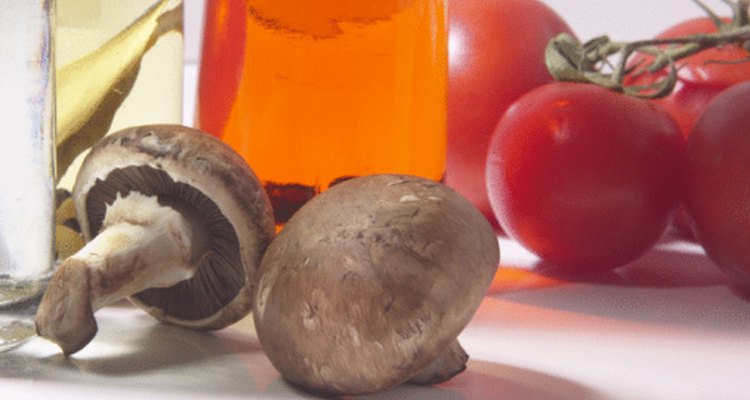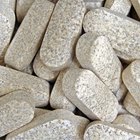
Mineral oil and olive oil may sound like the same thing — after all, they are both oils. However, not all oils are the same and this is the case with mineral and olive oil. Whereas one is a hearth-healthy cooking oil, the other is an over-the-counter medication for gastrointestinal problems.
Uses
Mineral oil is laxative that is used to relieve constipation and bowel irregularity, according to the Drugs.com. Mineral oil works by slowing the absorption of water from your intestine, which then softens the stool and relieves constipation. Olive oil is a vegetable oil used in cooking, salad dressings and baking. Olive oil is considered to be a healthier dietary fat than butter. When cooking, replace butter with olive oil as often as you can.
Calories
Olive oil is a high-calorie food that is absorbed into your body. Mineral oil is retained in your intestines and does not provide any calories. One tablespoon of olive oil has around 120 calories and 13.5 grams of dietary fat. Although the fat content of olive oil is high, most of the fats are unsaturated fatty acid; 1 tablespoon has 10 grams of monounsaturated, 1.4 grams of polyunsaturated and only 1.9 grams of saturated fatty acids. In addition, olive oil does not contain any dietary cholesterol.
Nutrients
Mineral oil does not have any nutritional value. In fact, it may actually deplete nutrients you have gotten from foods. Dr. William Sears, who is an associate clinical professor of pediatrics at the University of California, Irvine, and a founder of AskDrSears.com, warns that prolonged use of mineral oil may deplete your intestines of fat-soluble vitamins A, D, E and K, and decrease absorption of calcium and phosphorus. Olive oil does not contain any minerals, but it is a good source of vitamin E. One tablespoon of olive oil contains nearly 2 grams of vitamin E. The recommended dietary allowance of vitamin E for women is 15 milligrams per day, according to the Linus Pauling Institute.
Hearth Health
Not all dietary fats are the same. Saturated fats and trans fats are considered harmful fats that can increase your blood cholesterol. Unsaturated fatty acids, on the other hand, are considered helpful fats that may actually help lower your blood cholesterol levels and prevent your risk of cardiovascular disease. The Harvard School of Public Health recommends choosing foods that contain unsaturated fatty acids, such as olive oil and fish, and avoid foods that are high in saturated fatty acids, such as butter and cheese.
Related Articles

Can Borage Oil Help Acne?

Skin Benefits of Eating Coconut Oil

What Are the Benefits of Krill Oil on ...

Vitamins for Mental Alertness

What Are the Benefits of Extrapone ...

A List of Foods That Contain Choline

Side Effects of Certain Dri

A Low-Cholesterol Diet Plan Menu
Substitutes for Olive Oil in Cooking

Nutritional Facts of Fava Beans

L-Lysine for Hair Growth

The Benefits of Tuna & Omega-3 Oil

What Foods Provide Calcium D-Glucarate?

How to Reduce Acne Inflammation

Nutrition Information on Blueberries

Golden Flax Seed Vs. Dark Flax Seed

Does Deep-Frying Vegetables Rob Them of ...

The Benefits of Castile Soap

The Best Anti-Cellulite Supplements

Side Effects of Monosodium Glutamate
References
Writer Bio
Maria Hoven is a health and fitness expert with over 10 years of expertise in medical research. She began writing professionally in 2004 and has written for several websites including Wound Care Centers and healthnews.org. Hoven is earning a Doctor of Philosophy in cell and molecular biology from the University of Nevada, Reno.
Photo Credits
Hemera Technologies/AbleStock.com/Getty Images